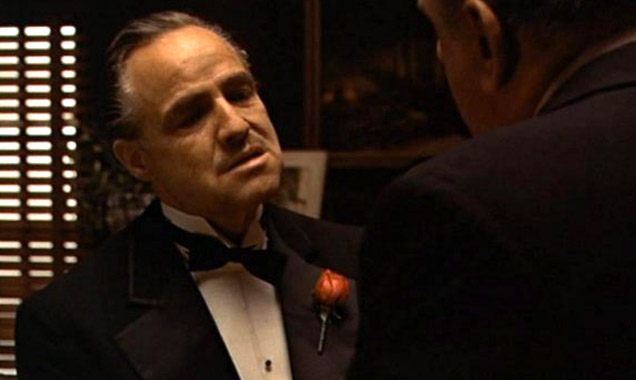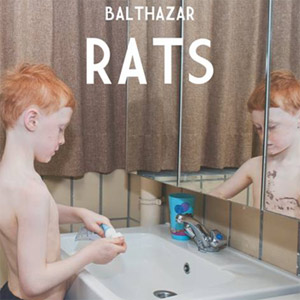The Top 10 Films Of All Time, According To Metacritic
By George Percival in Movies / TV / Theatre on 03 June 2014
There are ten films boasting a perfect 100 score on Metacritic, but what are they? And why are they deemed as works of cinematic perfection?
Only ten films command the ‘perfect 100’ on Metacritic, a website which converts reviews into a percentage score based on the tone of the review, or a simple analysis of the overall score. The hallowed selection of ten films constituted by every critic who has viewed them as absolutely flawless works of cinematic genius, consists of both legendary and widely revered pictures as well as others that are relatively unknown by the mainstream cinema audience. Nevertheless, they each possess qualities that render their artistic merit as both untouchable and undeniable. Some are adored in critical circles, whilst the wider public reacts with a little more indifference to their supposed untouchable qualities. So what exactly are these esteemed selection of films? And just why do the critics reach the unanimous opinion that these are simply works of cinema that cannot be criticised to any degree?

Robert Bresson’s 1966 feature Balthazar tells the tale of a mistreated donkey as he is passed through the hands of several owners, including a peasant girl, a satanic delinquent, and a saintly fool. It has been described by legendary French filmmaker Jean-Luc Godard as “absolutely astonishing, because this film is really the world in an hour and a half.” Such praise is atypical of that which greets the film, especially in retrospective analysis. The donkey rises from an idyllic childhood into a world of sadistic beatings in a tale that is both immensely moving and an astute observation of the people who occupy the world. The tale maybe allegorical, yet it is able to undergo multiple interpretations amongst a journey that is alive with spiritual meaning and shot evocatively by the French director.

Lawrence Of Arabia
The film that elevated the legendary Peter O’Toole to that of Hollywood mainstay, Lawrence Of Arabia is a three-and-a-half hour epic which centres on the exploits of T.E Lawrence and his adventures against the Turkish Army during the First World War. An iconic piece of cinema, it is full of breath-taking landscapes and a cinematography that remains spellbinding despite the picture’s age. It was also the high point in an illustrious career by esteemed British director David Lean, who approaches the camera work like a painter, filling the screen with colour like a brush on canvas. An ensemble cast which consists of the ever-brilliant Alec Guinness, Anthony Quinn, Anthony Quale and Jack Hawkins all excel in a picture that remains gripping throughout its potentially exhausting running time. It was the Titanic of its day, but while James Cameron’s epic was slick and shallow, Lawrence of Arabia exudes an engrossing warmth that extends to every facet of the film, from the gorgeous score, to a superb script and a performance by O’Toole that he would never better.
Voyage To Italy
Voyage To Italy centres around the strained relationship between Catherine and Alexander, a couple of sophistication and wealth, played by impeccable truism by Ingrid Bergman and George Sanders respectively. The film helped to redefine the contours of Italian neo-realism which had sprung up in the country shortly after the closing days of World War II. A threat of divorce hangs heavily in the air as the pair absorb Italian culture along the beautifully shot Sorrento coast. Bergman and Sanders are classic movie stars, but Voyage To Italy lies far from the tone either of the actors are known for. United only by their destination, Bergman and Sanders are strangers in each other’s company, yet their experiences in Italy open up something within them that has been suppressed for countless years. Maligned upon its original release, Roberto Rossellini’s picture has gained a new lease of life through retrospective analysis.
Best Kept Secret
Best Kept Secret focuses on the lives of a selection of autistic student at JFK High School, located in a particularly dilapidated part of Newark, New Jersey. Janet Mino, the focal point of the film, struggles to prepare these young men for their immersion in the adult world, which, for any autistic person, is a hugely anxiety-inducing prospect. Full of dramatic camera work by the film’s director, Samantha Buck, the film focusses on some truly important issues, using the emotional responses of Janet Mino as a mirror to the audiences own reactions. Its unflinching and often hard to watch, with the camera often hovering over one frustrating event for longer than is comfortable, but the effect is crucial to the film’s success as a thoroughly engrossing documentary piece.

The Godfather
A film that should need no introduction, Francis Ford Coppola’s Oscar-winning work has thoroughly ingrained itself on popular culture through some of the most iconic scenes and dialogue in cinematic history. An exemplary cast of screen legends, including Al Pacino, Robert Duvall, James Caan, Diane Keaton and, of course, Marlon Brando as the film’s eponymous protagonist, help bring alive a dazzling visual spectacle of arbitrary violence, love, death and above all, family. Like the Sicilian heritage of the film’s protagonist, The Godfather overflows with the richness of existence, of grand emotionality and doomed idealism all shot in a virtuosic filmmaking style that would posit Francis Ford Coppola amongst Hollywood’s greatest auteurs. It’s an enduring masterpiece, so alive with nuance and depth that it endures countless viewings without inducing fatigue. Cinema at its most arresting.
Next page: The Leopard, The Conformist, and more
Contactmusic




